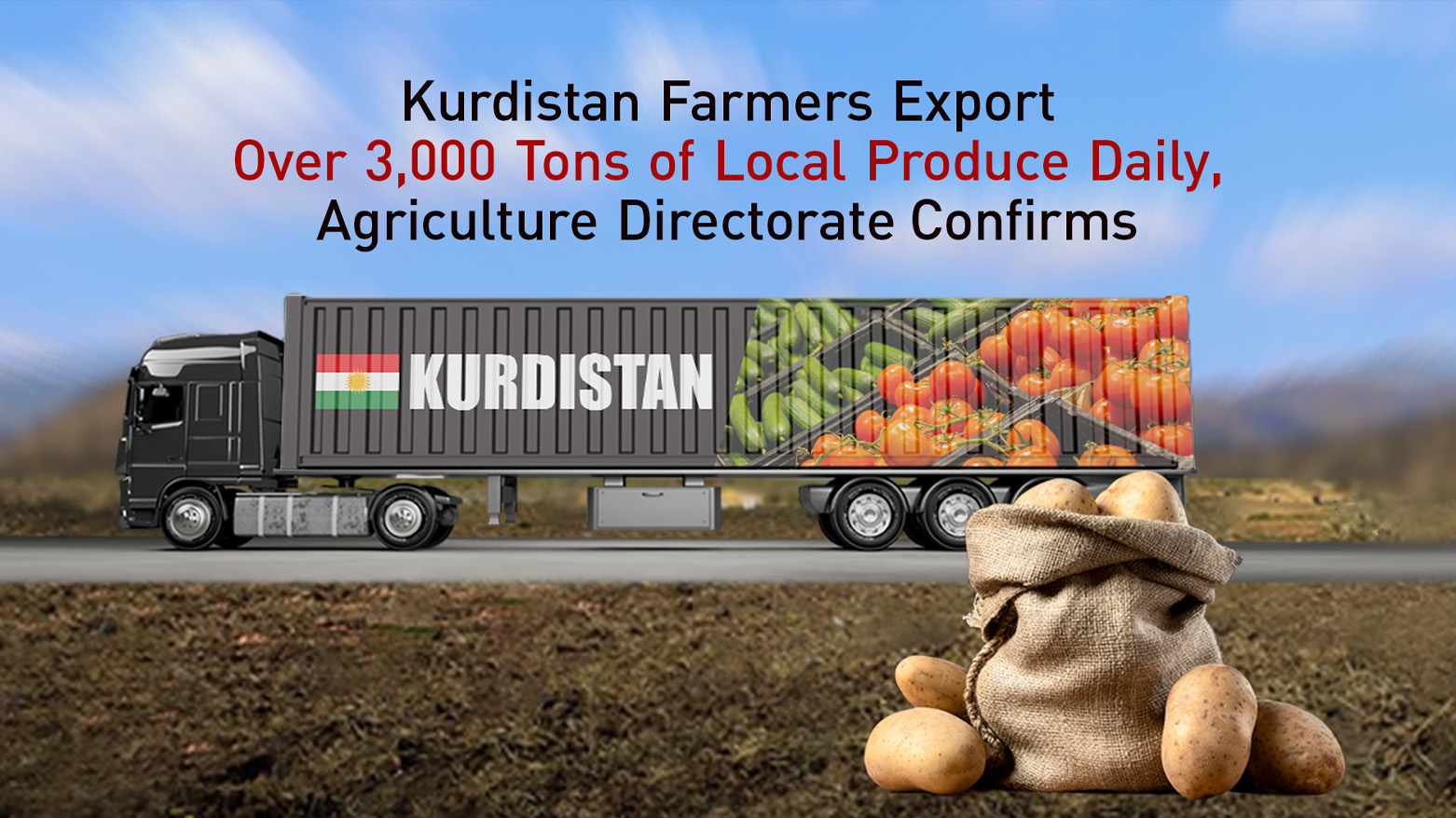Kurdistan Farmers Export Over 3,000 Tons of Local Produce Daily, Agriculture Directorate Confirms
Erbil's Director General of Agriculture told Kurdistan 24 that by 10 a.m. alone, over 100 trucks loaded with farm produce had left the region, with the number expected to reach 200 trucks by the end of the day.

Erbil (Kurdistan 24) – The Kurdistan Region is exporting more than 3,000 tons of locally produced fruits and vegetables daily, according to the General Directorate of Agriculture in Erbil. Tomatoes, onions, and cucumbers make up the bulk of the shipments, reflecting both the region’s agricultural capacity and surplus beyond local consumption.
On Sunday, Hemin Sayed Murad, Director General of Agriculture in Erbil, told Kurdistan 24 that by 10 a.m. alone, over 100 trucks loaded with farm produce had left the region, with the number expected to reach 200 trucks by the end of the day. He revealed that nearly 250,000 tons of Kurdish farm produce have already been exported to markets outside the Kurdistan Region since the start of the season.
“Every day, more than 3,000 tons of local produce are exported, especially tomatoes, onions, and cucumbers,” Murad explained. “All these products flooding the markets are from our own farmers and exceed local demand, which is why exports are permitted without restrictions.”
Murad stressed that the government fully supports traders who purchase local produce, highlighting that daily exports are allowed not only to markets in the Kurdistan Region but also to Iraqi cities under Baghdad’s federal administration.
“We are working seriously to ensure no authority blocks farmers’ exports, whether in Sulaimani, Duhok, or any other part of Kurdistan,” he added.
The Kurdistan Regional Government (KRG) has continued to highlight agriculture as a central pillar of its economic diversification strategy, reducing reliance on oil revenues and boosting food security across the Region.
Officials report that sustained investment in farming infrastructure, irrigation, and local production has led to sharp increases in crop yields, particularly in wheat, barley, and dairy production. The Region has also promoted greenhouse cultivation and modern farming techniques, ensuring a year-round supply of fresh produce to local markets while limiting dependence on imports.
Agriculture is part of the KRG’s broader effort to build a balanced economy by supporting non-oil sectors. Alongside farming, the government has directed resources into tourism and the manufacturing industry, aiming to create jobs and generate stable revenues that are less vulnerable to global oil price fluctuations.
By investing in these areas, the Kurdistan Region seeks not only to strengthen its domestic food supply and reduce trade imbalances but also to establish itself as a competitive hub for agribusiness and industrial growth in Iraq and the wider region.